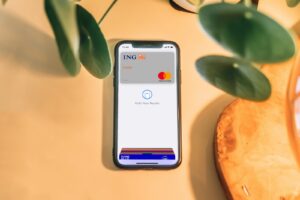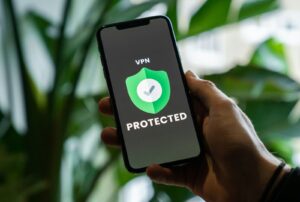Making your way across the digital wilderness? It resembles fishing rather a lot. You will need some patience and the correct bait.
Particularly for our seasoned citizens, but worry not; the best e-government tools and services are right here.
They simplify the road of running finances, healthcare, and keeping ties to your community, acting as reliable sidekicks.
Unbelievably, over seventy percent of seniors are experimenting with online banking. Yes, and roughly 62 million depend on Medicare.
Looks like we should welcome this tech tsunami right now, people.
Imagine now being able to just a few clicks away check your Medicare information anytime you want.
Need to get in touch with your doctors? Via a safe online portal.
Have to keep track of your medical past? One place contains all of this.
These sleek new instruments? For millions of seniors, they are not only handy but also changing the healthcare scene.
Yes, people are managing their health like professionals and satisfaction is rising.
Not to overlook the pennies and dollars either.
When it comes to benefit sorting, the online platform of the Social Security Administration is absolutely invaluable. There are no more long lines at the bank.
Just a few taps will pay your bills, and you will easily search for financial aid.
Studies reveal those who start using digital banking feel like financial ninjas. Who does not wish for that?
Now, as we get older, keeping in touch is just as important as a decent cup of coffee.
E-government apps link elderly people to nearby events and activities maintaining their lively spirit as well as local services.
Have you ever come upon a senior center or wellness program close by? These tools eliminate the guessing involved in maintaining activity.
Studies reveal seniors participating in community events show a shockingly 45% increase in emotional wellbeing, not based on my word for it.
Still, hang on; there is a drawback.
Great online power comes with, well, great obligation. We have personal data to protect.
Maintaining current knowledge in cybersecurity is like learning to avoid storm raindrops.
Knowing the risks is half the fight since phishing scams abound in every direction.
Seniors of today are not meandering this digital maze by themselves.
Ready at their disposal, e-government services allow them to address emotional happiness, finances, and healthcare.
Accepting technology makes life easier and creates opportunities for fresh friendships and business ventures in this always changing environment.
Seniors have a smorgasbary of digital tools at their disposal whether they manage healthcare with a user-friendly website, into community activities, or follow online safety like a seasoned pro.
These e-government services boldly fly the flag of progress, making sure aging is not a roadblock but rather a launching pad toward a better, fuller life.
Key E-Government Services for Medical Administration

Healthcare management helps seniors lead better lives.
The subtleties of healthcare can become intimidating as we get older.
Fortunately, e-government programs have greatly simplified navigating these obstacles.
Seniors can access a wealth of information, control their healthcare, and keep in contact with practitioners just a few clicks.
E-government services are meant for everyone, especially seniors who might be reluctant about using technology, not only for the tech-savvy.
With an eye toward healthcare management and the several tools at their disposal, the following sections will explore basic electronic services accessible to seniors.
Knowing these services can empower elderly people so they may more effectively manage their healthcare requirements.
Navigating the Portal: Accessing Medicare Online
Medicare is used by millions of American seniors.
One quite useful tool is the online Medicare portal. Senior access to it requires first creating an account.
The portal provides tools including plan comparisons, benefits overview, and eligibility checking.
- Procedures for Using the Portal:
- Visit the official Medicare website at medicare.gov.
- Under “Log in or Create an Account,” click.
- Use the prompts to set up a safe password and confirm identity.
- To view health plan information and claims history, become familiar with the dashboard.
- Main Attributes:
- Viewing their present Medicare benefits will help seniors know which services are covered.
- Enrollment: The portal helps one sign up for new prescription drug or Medicare Advantage plans.
- Users get updates catered to their particular health issues and conditions.
More than 62 million people are registered in Medicare according to statistics from the Centers for Medicare & Medicaid Services CMS, which emphasizes the need of having an easily available online platform for effective healthcare management.
Using patient portals, communicating with healthcare providers
Senior communications with their healthcare providers have changed thanks in large part to patient portals.
Direct interaction between doctors and patients made possible by these web-based tools improves the quality of treatment and simplifies communication.
- Advantages of applying patient portals:
- Seniors can schedule visits anywhere, review test results, and ask for prescription refills at 24/7 access.
- When talking about health concerns, secure communication guarantees privacy and security, so lowering the phone wait times and related frustrations.
For instance, 80% of seniors who used patient portals said they were satisfied with the simplicity of getting their medical data, according a study written up in the Journal of Medical Internet Research.
Better health results and closer patient-provider relationships follow from this efficient communication.
Managing Medical Records and Appointments Using MyChart
Effective management of healthcare needs depends on MyChart, a necessary tool.
Seniors may easily track their health records, schedule visits, and interact with medical professionals using MyChart.
- My Chart has certain features:
- View forthcoming appointments and get reminders to help seniors keep organized and ready.
- Review vaccination records, medications, and lab findings from Access Health Records. This empowerment improves control of health.
- How can I maximize My Chart?
- Tailor alerts to remain aware of reminders and health appointments.
- Ask direct questions of healthcare providers using the messaging tool, so reducing pointless office visits.
According to statistics, users of online health management tools show a 10% increase in adherence to medical advice, so ensuring that seniors stay involved and proactive in their health paths.
Tools for senior financial management
For seniors especially, handling money can sometimes become a difficult chore.
Many tools offered by e-government services enable financial management to be more efficient, so ensuring that seniors keep control over their assets and can access financial aid programs catered especially for them.
From handling Social Security benefits to using online banking services that give safety and convenience top priority, these tools can offer major help.
Knowing these choices helps to reduce financial stress and encourage a safe way of living.
Using Social Security Online Services: Management of Benefits
For many seniors, Social Security benefits are vital since they offer a required income source into retirement.
To enable simple and easy management of these benefits, the Social Security Administration SSA provides thorough online services.
- Important web services:
- Seniors may use this tool to project their future benefits depending on their income background.
- Senior applications for Social Security retirement, disability, or Medicare benefits can be easily handled online.
- Accountant Management:
- Seniors can design an account to actively manage their benefits, view statements, and change withholding.
The Social Security Administration estimates that almost 65 million people get benefits, which emphasizes the need of a good online platform that streamlines access to important information and benefits handling.
Online Banking: Convenience and Safety
Online banking is not only handy for seniors but also gives better financial control without requiring actual bank visits.
- Benefits of Online Banking:
- Seniors can handle their money from the convenience of their houses.
- Check balances, pay bills, and move money any time of day, 24/7 Access
Safety has to be first priority for seniors working on their online banking. These are some basic safety precautions:
- Create complicated passwords combining letters, numbers, and symbols using strong passes.
- Turn on two-factor authentication to provide further account access protection.
More than seventy percent of seniors use online banking, according to data from the American Bankers Association, and most say they feel confident about handling their money electronically.
Examining State and Federal Financial Aid Programs
From food aid to housing subsidies, financial assistance programs take many different forms and help seniors negotiate their financial obstacles.
Programs run by both states and federal governments address their particular situations.
- Various forms of assistance programs:
- SNAP, or supplemental nutrition assistance, offers food-purchasing help.
- Assisting with heating and cooling expenses, Low-Income Energy Assistance Program LIHEAP
- Seeking financial support:
- Using the Benefits.gov tool, which lists federal aid programs accessible, seniors can investigate state websites or
One in every eight seniors live in poverty, according to the Administration for Community
Living, which emphasizes the need of getting financial help to enable a decent level of living.
Apps for Accessing Community Services
The general state of seniors depends much on community involvement.
E-government apps enable access to events, health programs, and transportation, so bridging the gap between seniors and local services.
These instruments help seniors to keep social ties, get important resources, and participate in community events enhancing their life.
Seniors’ means of connecting with their communities change along with technology.
Locally Searching Senior Centers and Activities Online
From social events to instructional courses, local senior centers offer great resources.
E-government services let seniors easily and fast find these possibilities.
- Locally Centered Finding Techniques:
- Search for surrounding senior centers using local government websites or websites like eldercare.gov.
- Look through community calendars for events and meetings geared at seniors.
- Advantages of involvement:
- Activities help with mental health and fight loneliness.
- Programs sometimes provide tools including skill-building seminars, arts and crafts, and gym classes.
Studies reveal that seniors who engage in community events report a 45% increase in general emotional health, so highlighting the significant impact that relationship has on quality of life.
Getting Transportation Services Using E-Government Apps
For seniors especially if they have mobility problems, transportation can be difficult.
E-government applications emphasizing transportation services offer vital help.
- Services That Are Now Offered
- Many cities have specific apps available for elderly people looking for easily available public transportation choices.
- Often at a reduced cost for seniors, ride-sharing companies Uber and Lyft let users request rides.
- Safety Factors:
- When ride-sharing, seniors should always verify the identity of their driver and think about traveling with another senior for maximum comfort.
A National Aging and Disability Transportation Center study indicates that about 60% of seniors find it difficult to get dependable transportation, which emphasizes the need of good e-government solutions.
Using Online Portals to Enroll in Community Health Programs
Maintaining senior health calls for community health initiatives.
Accessible by online enrollment, many provide wellness checks, vaccinations, and health screenings.
- How to register:
- For details on currently offered programs and application processes, visit local health department websites.
- Make use of e-government portals connecting you to local community health services.
- Benefits of Participating:
- offers preventative care that over time lowers healthcare costs.
- Availability of instructional materials on chronic condition management results in improved health outcomes.
Based on American data,
Emphasizing the value of these resources, enrollment in community health programs has demonstrated to reduce hospitalization rates among seniors by 30%. Department of Health & Human Services
Legal and Senior Rights Resources
Seniors especially need to understand their legal rights.
Comprehensive tools provided by e-government services enable one to negotiate the complexity of elder law.
Reliable legal information improves seniors’ capacity to properly advocate for their rights.
Using these digital tools is critical as legal complexity rises with age.
Equipped with knowledge, elderly people can guarantee their rights are safeguarded and, should they so need, access to important legal services is guaranteed.
Learning Elder Law: Online Information Search
Elder law covers a spectrum of legal concerns including health care decisions and estate planning that directly impact seniors.
Online tools give seniors trying to learn their rights and obligations direction and clarity.
- Important Topics in Elder Law:
- Create trusts and wills to control your estate.
- Guardianship Issues: Know your choices should health deteriorate.
- Online references:
- Websites devoted to elder law, such the National Academy of Elder Law Attorneys NAELA, provide a wealth of information and direction.
Legal planning helps seniors who participate in it to report feeling safe about their future, which emphasizes the need of knowing and controlling legal issues early on.
Senior Legal Aid Service Access
From housing conflicts to health care rights, legal aid services give seniors handling different problems vital help.
Fortunately, many companies provide legal help catered especially to elderly persons.
- Methods of Service Access:
- State bar associations or local aging organizations help one to identify senior legal services.
- Legal Services Corporation LSC and other online sites assist in matching seniors to low- or free-cost legal assistance.
- Legal Aid: advantages
- Help negotiating difficult legal papers.
- In cases involving financial exploitation or elder abuse, representation
The LSC’s annual statistics show that almost one in three seniors deal with legal problems, which emphasizes the need of easily available legal resources.
Making Use of Online Tools for Consumer Advocacy
Another vital area seniors can use e-government tools is consumer advocacy.
Senior protection from fraud and scam comes from knowledge of consumer rights.
- Acquiring Resources:
- Resources available from the Federal Trade Commission FTC help one to grasp consumer rights and file complaints.
- Websites such as AARP provide consumer tip sheets targeted on problems relevant to seniors.
- Advocacy Groups:
- Combining companies committed to consumer protection will help to highlight top voices.
- Many organizations offer seminars teaching seniors how to spot and document frauds.
According to AARP data, 80% of senior citizens do not disclose fraud events, suggesting a clear demand for more awareness-raising tools and resources.
Senior Digital Literacy and Instructionual Resources
Senior capacity to use e-government services and interact with technology can be much improved by online tutorials and educational resources.
Offering seniors the appropriate support helps to create a more inclusive surroundings.
Accessing Online Tutorials for E-Government Services
Senior citizens can learn about many e-government services online, so ensuring that they can easily negotiate platforms.
- Available forms of tutorials:
- Video guides walking through standard e-government procedures, such online benefit application.
- Interactive guides offering precise directions for several platforms.
- Where might one locate tutorials
- Many times, government websites feature sections specifically for seniors with tools and instructions.
- SeniorNet and other companies like it concentrate on giving older people especially educational possibilities.
Studies on seniors who participate in e-learning courses reveal a 40% increase in digital skills, so highlighting how tutorials might empower their online experiences.
Attending Virtual Seniors’ Technology Workshops
Local libraries and community groups regularly arrange online seminars aimed at senior technology education.
Attending these seminars helps one to grow confident and improve knowledge.
- Advantages of workshops:
- Small class sizes let one get individualized attention and help.
- Subjects cover from fundamental internet knowledge to efficient social media use.
- Identifying and involved:
- Look through local community center websites for schedule changes or use Eventbrite to find forthcoming events.
- To suit various learning speeds, many seminars provide recordings for later access.
According to statistics, seniors who take part in technology training courses feel more at ease using different online services, so proving the great influence these learning chances can have.
Locating Online Safety and Personal Development Courses
Seniors would much benefit from online courses aiming at personal development and safety.
These classes cover everything from basic computer skills to knowledge of fraud prevention.
- Popular Online Platforms:
- Websites like Coursera and edX feature courses especially for seniors that emphasize developing skills.
- Using their senior centers, many local governments grant access to free online courses.
- Interest Subjects:
- Cybersecurity: Developing awareness of online dangers and safeguarding of personal information.
- Understanding financial planning, investment choices, and budgeting helps one be financially literate.
Data shows that seniors enrolled in educational courses show more notable awareness of online safety practices, so supporting the importance of such courses.
Managing Social Relationships within E-Government
Seniors’ emotional and mental health depend on social ties.
E-government services’ online platforms help to lower isolation by enabling communication, so strengthening a feeling of community.
Using these digital channels lets seniors stay social active, stay in touch with friends and relatives, and interact with more general community networks.
From social media to internet support groups, e-government services simplify and accessable connection.
Using Social Media Sites for Community Involvement
Senior citizens can now connect with others, share stories, and take part in social events thanks to social media channels, which have become rather effective tools for community involvement.
- The advantages of social media:
- Maintaining relationships with family and friends across distance helps
- offers chances to participate in groups around common interests, so encouraging social interaction.
- Popular Sites for Seniors:
- Seniors use Facebook extensively for community group participation, updates sharing, and family and friend correspondence.
- Senior citizens can interact with their neighbors via sites like Nextdoor, so strengthening the feeling of local community.
According to a Pew Research Center study, 40% of seniors said their social media contacts made them less lonely, so demonstrating how beneficial these platforms can be for general wellbeing.
Locate Senior Online Support Groups and Forums
Online forums and support groups give seniors seeking community and understanding vital tools.
Older people can freely share their experiences in these venues.
- Locating Support Groups:
- Websites like AgingCare offer lists of several online support groups.
- Their websites allow one to find virtual meetings hosted by local hospitals and community groups.
- Topics Discussed in Support Groups:
- Giving a safe environment where caregivers may share difficulties helps them support each other.
- Wellness and Health: Sharing experiences connected to particular medical illnesses.
Data indicates that seniors involved in online support groups have a 50% increase in emotional well-being, which emphasizes the need of having encouraging communities.
Reaching Family via Digital Media
Keeping in touch with family is absolutely vital.
Digital communication tools help seniors to regularly interact with loved ones, so strengthening family ties.
- Useful Instruments for Communication:
- Regardless of distances, video call apps like Zoom or Skype let for in-person meetings.
- Easy text and picture sharing are made possible by messaging apps including WhatsApp.
- Techniques of Family Engagement:
- Plan frequent family video calls to keep ties and distribute life updates.
- Share pictures, significant news, and inspire constant communication in a family group chat.
Studies reveal that keeping regular contact with family boosts seniors’ feelings of support and care, so highlighting the importance of digital communication channels.
Senior Safety and Privacy Protection Using E-Government
As seniors interact with e-government services, privacy and safety take front stage.
Seniors need to be knowledgeable about safety precautions to stay clear of hazards and fully appreciate technology.
A safe online experience depends on one learning cybersecurity and fraud prevention.
Knowing Online Privacy: Safeguarding Personal Data
Ensuring seniors’ safety online starts with an awareness of privacy.
Careful management of personal data can help to prevent problems.
- Online privacy tips:
- Change passwords often; never share personal information without first confirming.
- On social media, use privacy settings to limit who views private information.
- Reference Materials: Informative Tools
- Websites like the Federal Trade Commission feature tools especially targeted at seniors for better knowledge of online privacy.
- The Identity Theft Resource Center emphasizes the need of complete knowledge about online privacy since seniors are more and more targets for identity theft.
Understanding Cybersecurity Threats: Advice for Older People
Senior citizens must be aware of cybersecurity risks if they are to negotiate online environments safely.
Many common dangers can compromise safety and cause major problems.
- Typical Cyberthreats:
- Emails posing requests for personal information from trusted companies are phishing scams.
- Malicious programs called ransomware lock file access until a ransom is paid.
- Defensive Strategies:
- Uninvited communications asking for personal information should make one dubious.
- To keep system integrity, routinely upgrade programs and apply antivirus software.
According to statistics, staff awareness and training could help to prevent 60% of cybersecurity events, so stressing the need of education for elderly people as well.
Reporting Scams and Fraud: Essential Actions to Follow
Senior citizens who fall for a fraud or scam must know how to document these events.
This helps law enforcement handle problems and maybe retrieve missing property.
- Procedures for Reporting:
- Record every element about the incident, including dates, amounts, and correspondence.
- Tell local authorities and agencies like the Federal Trade Commission about the fraud for additional inquiry.
- Tools for Help:
- Many companies focus in helping seniors who have fallen victim to frauds, providing support and counseling
- ud cases are reported, according to data, suggesting a great need for action and support for seniors who might feel embarrassed or perplexed about getting help.
Our opinions are what?
Ultimately, for seniors negotiating the complexity of healthcare and financial management, embracing e-government services marks a turning point.
This metamorphosis marks empowerment rather than only convenience.
Seniors no more have to feel overwhelmed by the complexities of Medicare, patient communications, or financial aids since they have technology at their hands.
Alternatively, they can actively participate in their financial plans and healthcare decisions, so improving their quality of life.
Studies show that seniors using digital tools have better healthcare results and more general ownership of needs.
From social security administration to online Medicare sites, the tools at hand give seniors a cloud of support once unattainable.
Seniors can access important information on benefits, doctor visits, and community resources by means of a user-friendly interface.
Given almost 65 million people depending on Social Security benefits, this degree of accessibility is absolutely vital and emphasizes the need of a good online presence.
Moreover, the effect of simplified communication through patient portals strengthens the link between seniors and their healthcare providers, so fostering better trust and care satisfaction.
Moreover, the financial aid programs designed for seniors show the government’s will to make sure elderly people may live happy lives.
Programs meant especially for housing and food security show how e-government services open doors to a decent living, so reducing stress for one in eight seniors living in poverty.
Improved financial management promotes security, so enabling seniors to interact with their communities instead of isolating themselves out of financial concerns.
Using digital tools—a great tool for fostering peace of mind—statistics reveal a notable rise in seniors who feel they have control over their money.
Adopting these services should be a team effort going ahead.
Each of us has a role to make sure seniors have not only the means but also the knowledge and abilities to make good use of them.
Bridge the technology divide by means of educational projects, seminars, and digital literacy campaigns, so highlighting the cooperative nature that will improve the quality of life for our seniors.
We help the older community to flourish and actively participate in society by establishing an inclusive environment that gives both safety and involvement top priority.
Working together, we can make sure that technology stays a strong friend in improving not only finance and healthcare but also the general welfare of our esteemed elderly people.
Common Inquiries
For senior citizens’ healthcare management, what are the most crucial e-government services?
Access to Medicare online, patient portals for correspondence with healthcare providers, and tools like MyChart for appointment and health record management rank highest among the most important e-government offerings.
These services help seniors more easily negotiate their medical needs.
Senior access to Medicare online?
By visiting medicare.gov, registering, and then navigating the dashboard to check benefits, verify eligibility, and control enrollment, seniors can access Medicare online.
Designed with senior in mind, the portal is easy to use.
How might patient portals help you?
Senior access to their medical records via patient portals is 24/7.
They can make appointments, ask for prescription refills, and review test findings.
This open communication saves time and enhances the results of health.
How might MyChart help seniors better manage their healthcare?
Seniors may easily schedule appointments, access medical records, and interact with healthcare providers using MyChart.
Direct messaging and appointment reminders enable seniors remain organized and involved in their health management.
Where can one manage Social Security benefits online?
Online services provided by the Social Security Administration include a benefits calculator and an application process for either disability or retirement benefits.
To easily handle their benefits, seniors should open a “My Social Security” account.
Should seniors use online banking, and what precautions should they take?
Indeed, if seniors exercise care, online banking is safe.
To fight fraud, use strong passwords, turn on two-factor authentication, and routinely check accounts.
Where can seniors locate programs offering financial aid?
Through state websites or by visiting Benefits.gov, seniors can investigate financial assistance programs.
Programs cover their particular financial needs and range from food aid to energy subsidies.
How might seniors interact with local services?
E-government tools let seniors locate local senior centers, rides, and community health initiatives.
These tools enable elderly people access necessary services and participate socially.
In what ways might elderly people guard their legal rights?
Online tools let seniors learn about elder law, get legal help, and network with consumer advocacy groups.
Knowing their legal rights helps seniors to effectively speak for themselves.
How can seniors increase their digital literacy? Which tools are at hand?
Numerous web courses and tutorials aimed at senior technology education abound.
Virtual meetings provided by many community organizations and libraries help to improve digital skills and confidence.
How might elderly people stay in touch socially using digital tools?
Seniors can join internet support groups and reach family and friends via social media.
Regular communication made possible by tools including messaging apps and video conferences helps to lower loneliness.
Regarding online privacy and safety, what should seniors know?
Seniors should routinely change passwords, apply privacy settings on social media, and be aware of unwelcome correspondence.
Protection of personal information online depends on an awareness of these ideas.
How can elderly people document frauds or theft they come across?
Should seniors come across fraud, they should record all information and notify local authorities as well as groups like the Federal Trade Commission.
Getting help from specialized companies can also enable people negotiate the aftermath.







